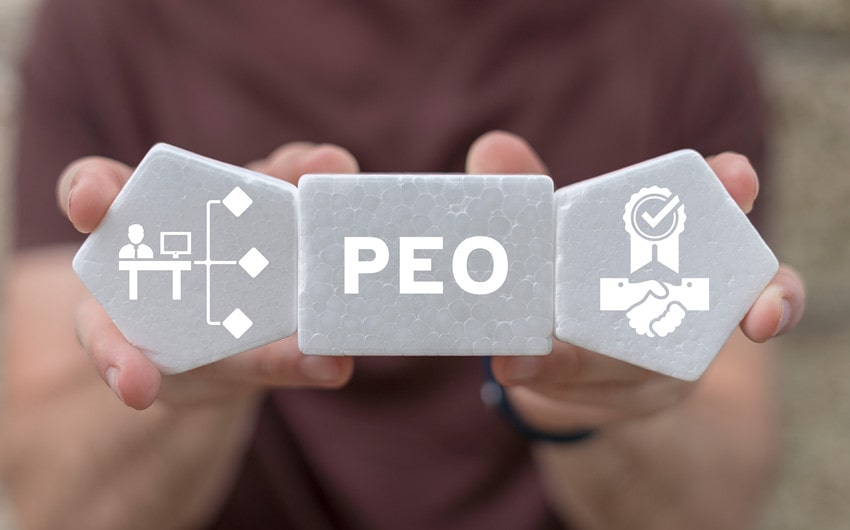Boosting Business Expansion Through PEO
Key Takeaways
- Professional Employer Organizations (PEOs) help businesses streamline HR, payroll, compliance, and benefits management.
- PEOs provide critical support for fast-scaling companies and those lacking deep HR resources.
- Small and mid-sized organizations can use PEOs to remain competitive, especially in challenging labor markets.
- Expert partnerships with PEOs can lead to better risk management and improved employee satisfaction.
- Collaborating with a PEO is different from outsourcing and comes with unique benefits and strategic advantages.
What Is a Professional Employer Organization?
A Professional Employer Organization, or PEO, is a strategic HR partner that establishes a co-employment relationship with businesses to manage HR, payroll, tax administration, employee benefits, and compliance tasks. Unlike traditional outsourcing, PEOs become intricately involved with the day-to-day employment aspects of your business, reinforcing internal processes and allowing leaders to focus on growth.
When it comes to PEOs for growing companies, the advantages extend far beyond simply alleviating administrative burdens. This co-employment relationship offers tailored HR solutions that can be scaled as the business grows, ensuring access to expertise and resources that rival those of even the most significant competitors.
Why Businesses Turn to PEOs
Growth-focused organizations often contend with shifting regulatory mandates, talent shortages, and an increased need for robust HR capabilities. According to HR Morning, PEOs prove invaluable for companies that either lack internal HR infrastructure or need to scale their workforce rapidly. Businesses leveraging PEO partnerships experience up to 9% faster growth compared to their peers.
These partnerships are particularly beneficial for businesses competing in tight labor markets or expanding into new states. By delegating complex employment functions to HR experts, business owners free up critical time to focus on innovation, customer experience, and expansion efforts.
Core Services Provided by PEOs
PEOs offer a vast array of services designed to simplify business operations and reduce compliance risks, including:
• Payroll management and tax filings, ensuring accurate and on-time compensation and deductions.
• Administration of health insurance plans, retirement accounts, and wellness benefits.
• Risk management solutions, such as workers’ compensation coverage, safety programs, and claims support.
• Full-spectrum HR support—from recruitment and onboarding to policy development and employee relations.
• Guidance on compliance with federal, state, and local labor regulations.
Streamlining these tasks translates to fewer administrative headaches and increased ability to devote attention to strategic business growth.
PEOs vs. Outsourcing – Which Is Right for Your Business?
While both Professional Employer Organizations (PEOs) and traditional outsourcing can alleviate HR burdens, their approaches are distinct. Standard outsourcing keeps employment-related risks and liabilities squarely with the employer, often providing transactional, back-office support from afar. In contrast, PEOs share in these obligations through the co-employment model. This close partnership ensures businesses receive proactive compliance advice, robust risk mitigation, and training aligned with organizational objectives.
Selecting between the two models depends on your company’s growth ambitions, resources, and appetite for risk. PEOs stand out for businesses seeking an integrated extension of their HR function, dedicated to propelling long-term stability and scalability. An article from Business.com highlights how PEOs enable small businesses to offer benefits typically reserved for larger companies, such as comprehensive healthcare, retirement plans, and wellness programs. This can significantly enhance employee satisfaction and retention, contributing to a more engaged workforce.
Mitigating HR Challenges Through PEOs
Navigating today’s regulatory landscape is an overwhelming and resource-intensive task for any growing business. Wage and hour laws, workplace safety mandates, evolving tax codes, and new remote work policies continually reshape employer obligations. PEOs provide dedicated legal and compliance support, thereby reducing the likelihood of costly penalties, lawsuits, or operational disruptions.
Mid-sized firms and startups expanding into multiple regions often face varying state and local rules. PEOs bring expertise and technology that help companies remain compliant across all geographies, ensuring seamless employee experiences and reducing the risk of employee turnover.
How PEOs Boost Employee Benefits and Retention
Offering top-tier benefits isn’t just for Fortune 500s. Through pooled purchasing power, PEOs negotiate competitive rates for medical, dental, vision, and 401(k) plans—giving smaller firms access to options typically reserved for large corporations. This ability dramatically improves recruiting outcomes by equipping growing businesses with premium benefits packages that attract high-caliber talent.
Additionally, a substantial benefits offering not only attracts new hires but also increases satisfaction and loyalty among existing staff. Studies show that employees who feel supported and valued are significantly less likely to pursue opportunities elsewhere, thereby helping companies maintain continuity and culture during periods of growth.
Future Trends in the PEO Industry
The PEO landscape is rapidly evolving with the adoption of digital HR platforms, artificial intelligence, and remote employee management tools. As more companies adopt distributed workforces, PEOs are well-positioned to provide solutions that ensure regulatory compliance and facilitate seamless collaboration across borders. Cloud-based systems, real-time analytics, and personalized employee portals are enhancing HR service delivery and transforming the way businesses manage their people.
The future promises tighter integration between PEOs and client organizations, more agile service offerings, and continued emphasis on data-driven decision-making—enabling even faster growth for companies that leverage these partnerships.
Conclusion
PEOs have become vital allies for growing businesses, going beyond traditional outsourcing by taking an active role in HR, payroll, compliance, and employee benefits. By partnering with a PEO, companies can more effectively navigate complex regulations, streamline administrative tasks, and focus on strategic growth while attracting and retaining top talent.
As workforce dynamics and technology continue to evolve, PEOs are increasingly leveraging data-driven tools and agile solutions to meet business needs. This deep integration positions them not just as service providers but as strategic partners that drive long-term growth, operational efficiency, and organizational success.







